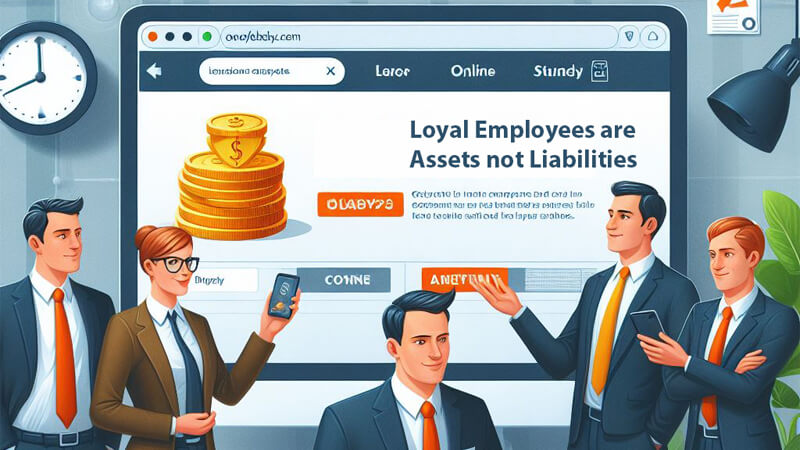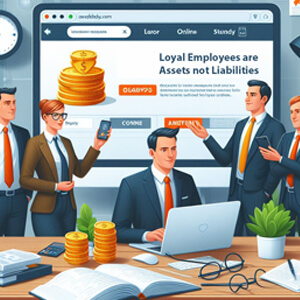Interestingly, the “Business Buying Process” does not consist of a one man show, since an entire team is composed to be looking after this task and putting up extra efforts to acquire expected results for the company. We must understand that each designation has its own purpose and sheer importance, which assists in achieving achieve expected business output.

Here’s why:
- Long-Term Commitment:
– Loyal employees demonstrate a commitment to the organization’s goals and values over the long term.
– Their dedication and tenure contribute to stability and continuity within the workforce.
- Knowledge Retention:
– Loyal employees often possess valuable institutional knowledge and industry-specific skills.
– Retaining this knowledge within the organization prevents the loss of critical information.
- Increased Productivity:
– Employees who feel a sense of loyalty are more likely to be engaged and motivated in their roles.
– High levels of job satisfaction and commitment can lead to increased productivity and efficiency.
- Cost Savings:
– Recruiting and training new employees can be expensive.
– Retaining loyal employees reduces turnover costs and the need for frequent recruitment and onboarding.
- Positive Workplace Culture:
– Loyal employees contribute to a positive workplace culture.
– Their commitment sets an example for others and fosters a collaborative and supportive environment.
- Innovation and Creativity:
– Employees who feel secure in their positions are more likely to contribute ideas and innovations.
– A loyal workforce is often more open to taking calculated risks, leading to creative solutions.
- Customer Satisfaction:
Loyal employees who are satisfied in their roles are likely to provide better customer service.
Positive interactions with customers contribute to overall customer satisfaction and loyalty.
- Employee Advocacy:
Loyal employees are more likely to speak positively about the organization, both internally and externally.
They become advocates for the brand, attracting potential talent and customers.
- Adaptability to Change:
Loyal employees are often more willing to adapt to changes within the organization.
Their commitment and belief in the company’s mission make them resilient during transitions.
- Reduced Conflict:
Long-term employees are generally familiar with the organization’s culture and dynamics.
This familiarity can contribute to reduced workplace conflicts and smoother collaboration.
In summary, considering employees as assets emphasizes the long-term value they bring to the organization. Human resource management strategies that focus on employee loyalty can lead to a more stable, productive, and positive work environment.

